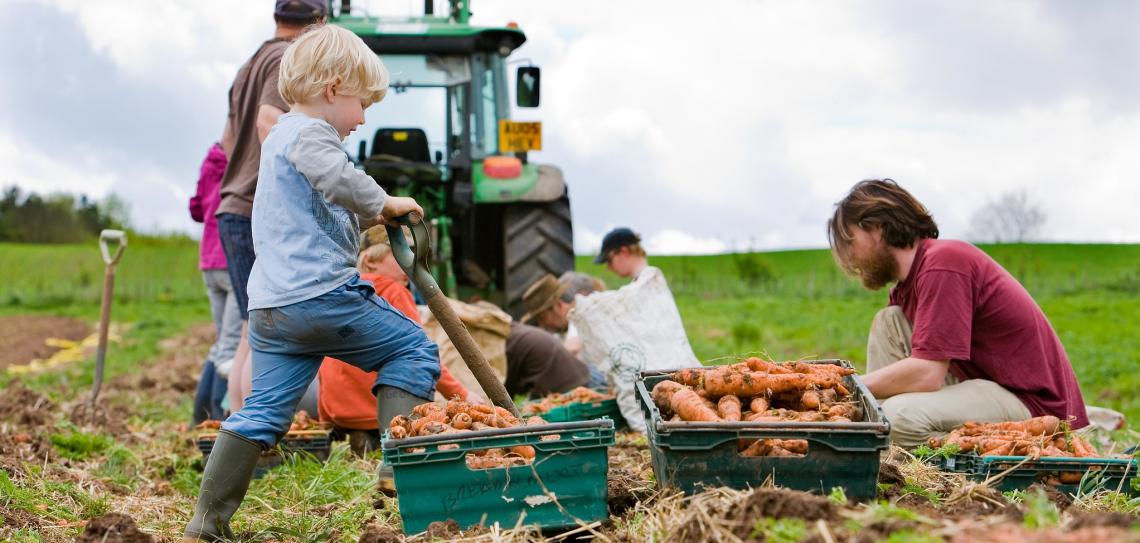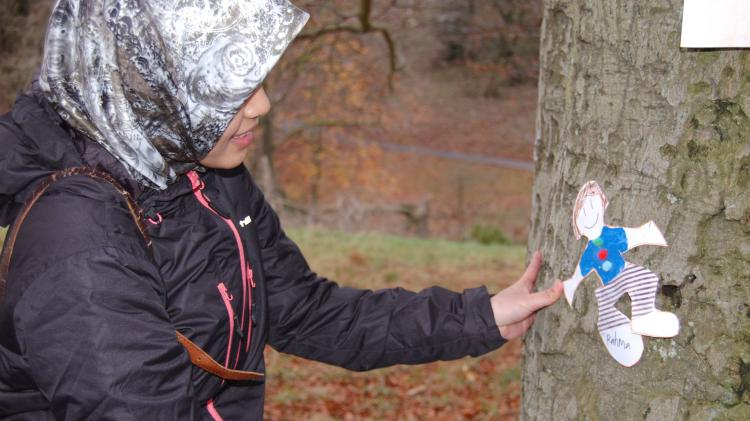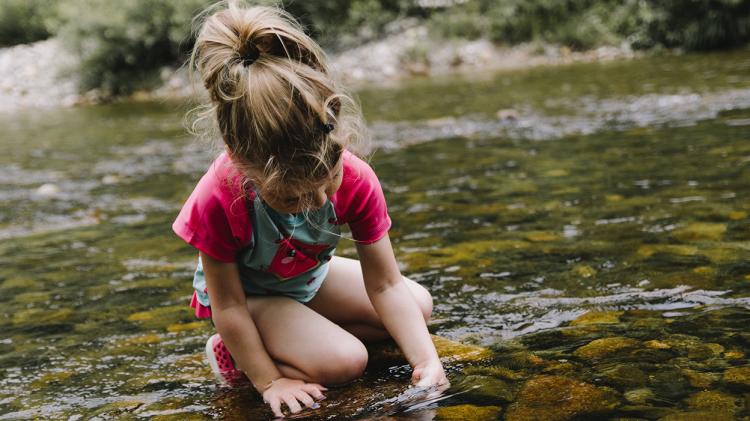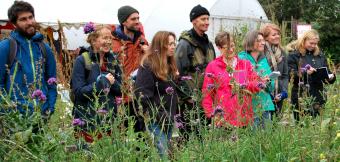
Parent consciously
Our planet can support eight billion careful people or one billion careless ones. Think carefully about how many children you have, and raise them to live lightly on the Earth. Prepare kids for living in a climate changed world and help them to cope with their fears about the future.

Overpopulation and over-consumption
The earth's population is greater than it has ever been, and global life expectancy continues to rise. Critics say this situation is unsustainable, is destroying the natural world, and that a population crash is inevitable. Some climate change activists have even declared a 'birth strike', saying they won't have children until climate change has been tackled. So is the Earth already over-populated? There is no scientific agreement on the Earth’s optimum population, or on an ideal family size. There are well-informed arguments and supporting scientific evidence on both sides.
The 52 Climate Actions team is divided on this issue, so we aren't going to suggest what the Earth's optimum population is, or tell you how many children to have. We do agree that over-consumption of the Earth's resources is a massive problem which has seriously damaged the planet and that will, if left unchecked, soon lead to a major crisis for humanity. Rather than take the issue of population in isolation, it must be coupled with the issue of consumption.
The average Malawian has an annual carbon footprint of around 0.1 tonnes of CO2e, the average American 16.5 tonnes. So 165 Malawians have the same carbon footprint as one American. Even within America there are huge variations; some manage annual emissions below three tonnes, while others have a footprint hundreds of times greater. In any discussion of population, we need to include the issue of consumption.
So, from a climate change perspective, how many children should you have? Only you can decide. A good reason to have children is that humanity really needs conscious, prepared young people in the next generation to deal with the complex consequences of climate change. On the other hand, every one of those children will have a substantial carbon footprint which could last for 80 or 90 years. However many children you have, do all you can to reduce their present and future carbon footprint and their consumption of the Earth's other resources; start with Action 2: ‘Reduce your carbon footprint’.
If you don’t have children of your own, you can make a huge contribution to raising the next generation through teaching, community organising, supporting friends who are parents, befriending kids and supporting children’s charities.

Raising climate-conscious children
There are many ways you can prepare your children for a climate changed future. They can all be summed up in three simple principles:
- Children who are connected with nature will act to save it.
- Respected adults are the best role models for children.
- It takes a whole community to raise a child.
Encourage your children to cultivate a love of nature by taking them to mountains, forests, lakes and the sea. Give them opportunities to encounter wild places and wild things. Take them hiking and camping, and explore the plants and animals in your local green spaces. Help them to understand that we humans are a part of the natural world and that it is our responsibility to protect it.
Get them planting trees, or gardening. A trip to the plant nursery and a few hours in the sun will provide an inexpensive opportunity to learn about what plants need to thrive, and how they help us all breathe easier.
Children love being given some money of their own to spend, so why not let them loose in a second hand (thrift) shop with some cash? This teaches them about reducing consumption and that second hand things can still be 'new' to someone. Suggest they donate their out-grown clothes and toys to younger children or charity.
Involve your kids in the climate actions you are taking, and explain why you have chosen those ones. Every one of the 52 climate actions is accompanied by a list of resources for children, so use them. Ask them what actions they would like you to take as a family and explore how they can contribute. They may prove more radical than you when it comes to actions like eating less meat or cycling more!
As a parent, having a strong support network and being part of a community is really important. It is not easy to raise your children "consciously", which often means going against the status quo, otherwise. In addition, children are more easily motivated and interested in getting involved when they see other children doing so.
Talking to children about climate change
Before you begin, make sure that you know enough to answer their questions, and make sure your information is accurate and up to date. It's impossible to control the messages kids receive about climate change from the radio, TV, or school yard, so be ready for some tough questions and some myths. Be honest with them but also be age appropriate. A book or an imaginative activity can explain climate change in a way you might not think of. If your kids are under 12, it's important to reassure them that adults have got it covered and will protect them; don't let them feel it's their responsibility or that older generations have 'messed it up'. One way around this is to talk about positive actions people are taking.
If your kids feel sad, angry, or anxious about climate change, that's pretty much the same way that adults feel. Climate change is scary for everyone, and helping them to communicate all their emotions will help them to cope with the challenges in their lives (fear, grief, guilt, discouragement, hope, excitement, wonder, etc.). When we humans are scared or worried, it’s crucial that we feel empowered to take action (see Action 41: 'Look after your mental health'). Help your kids choose one of the 52 Climate Actions and then work with them on completing it. Also suggest they take action at school or campaign more widely. Kids are actually pretty powerful, and their voices can have a real impact; just look at Greta Thunberg!
Picture credits: 1) Credit: Community Supported Agriculture (CSA) Network UK and Canalside Community Food 2) flickr.com/permaculture-association 3) Kelly Sikkema - unsplash.com
Plan your family carefully
Help raise climate conscious children
Support young people's climate action events
Support children’s charities and children's education globally



